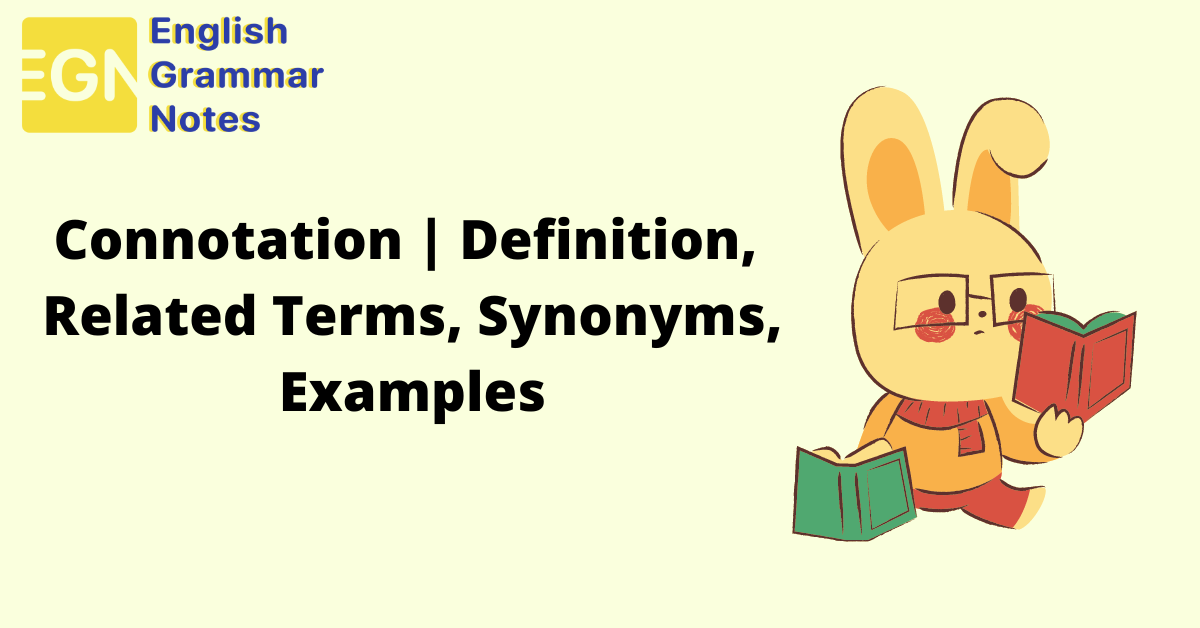Writers make use of different narrative techniques in order to create complex ideas and deeper meanings. Connotation is one such technique used. Connotation is a literary device that refers to the selection of a word or phrase for its implied meaning instead of its literal one. In this article, you will be introduced to all the essential information about connotation, including its definition, types, its significance, examples, synonyms, etc.
- What Is the Connotation?
- 3 Types of Connotation
- Why Are Connotations Important?
- Connotation vs. Denotation
- Synonyms of Connotation
- FAQs on Connotation
What Is the Connotation?
Connotation refers to the use of words in such a way that the meaning implied is different from the literal meaning, which is known as denotation. For instance, take the word “blue,” which is a color, but blue is also used to describe a feeling of sadness. Connotations can be of three types: positive, negative, or neutral. Writers make use of different types of connotations to highlight a certain idea or point.
3 Types of Connotation
As mentioned earlier, there are three kinds of connotations. These include:
- Such words produce either a favorable or positive emotional response.
- Such connotations portray a person or thing negatively or unfavorably.
- Written from a neutral point of view, such words have no positive or negative connotation attached.
English Grammar Notes available on our website cover common grammar points with clear explanations, examples, and solutions, making practise easier.
Why Are Connotations Important?
Writers make use of connotations for several reasons. These include:
- Connotation is useful in creating imagery.
- Connotations help in describing a character in depth.
- The main function of connotation is to evoke emotions.
- Connotation determines the tone of your writing.
Also check,
Connotation vs. Denotation
Connotation and denotation are two distinct techniques:
- The denotative meaning of a word refers to its literal meaning.
- Connotation can be considered as the implied or suggested meaning of a word.
Synonyms for “Connotation”
The term “connotation” has various synonyms. Some of these closest in meaning include overtone, undertone, as well as and undercurrent. Some other synonyms include implications, coloring, hint, nuances, flavor, feeling, aura, echo, association, and suggestion.
FAQs on Connotation
Q1. What is the connotation?
Ans: Connotation can be considered as the use of words in such a way that the meaning implied is different from its literal meaning, which is known as denotation.
Q2. What are the three types of connotations?
Ans: The three basic types of connotations include positive connotation, negative connotation, and neutral connotation.
Q3. Why are connotations used?
Ans: Connotation has various purposes. These include: it creates a tone, helps to create imagery, evokes emotions, etc.
Q4. Differentiate between connotation and denotation.
Ans: Connotation can be considered the suggested meaning of a word. On the other hand, denotation refers to the literal meaning of a word or phrase.
Conclusion
Connotation is a common device used in literature as well as in everyday conversations. Without connotations, words would be restricted to having a single meaning. Hence, connotations give additional meaning to words and phrases. Connotations give a positive or negative meaning to words based on the context of their usage.
